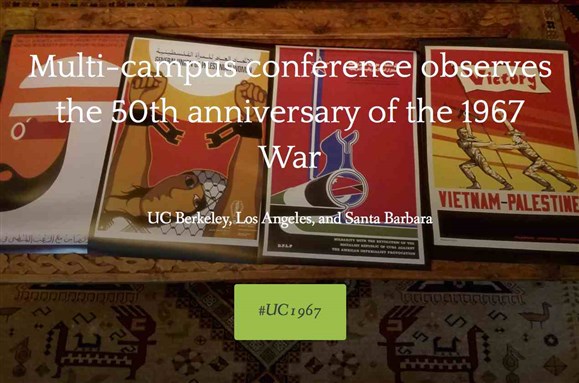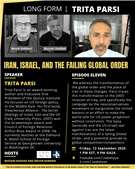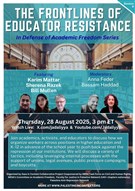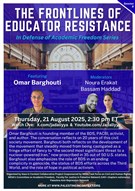On 5-6 March 2011, the Palestine Society at the School of Oriental and African Studies (SOAS) in London will hold its seventh annual conference, "Past is Present: Settler Colonialism in Palestine." This year`s conference aims to understand Zionism as a settler colonial project which has, for more than a century, subjected Palestine and Palestinians to a structural and violent form of destruction, dispossession, land appropriation and erasure in the pursuit of a new Jewish Israeli society. By organizing this conference, we hope to reclaim and revive the settler colonial paradigm and to outline its potential to inform and guide political strategy and mobilization.
The Israeli-Palestinian conflict is often described as unique and exceptional with little resemblance to other historical or ongoing colonial conflicts. Yet, for Zionism, like other settler colonial projects such as the British colonization of Ireland or European settlement of North America, South Africa or Australia, the imperative is to control the land and its resources -- and to displace the original inhabitants. Indeed, as conference keynote speaker Patrick Wolfe, one of the foremost scholars on settler colonialism and professor at La Trobe University in Victoria, Australia, argues, "the logic of this project, a sustained institutional tendency to eliminate the Indigenous population, informs a range of historical practices that might otherwise appear distinct--invasion is a structure not an event."[i]
Therefore, the classification of the Zionist movement as a settler colonial project, and the Israeli state as its manifestation, is not merely intended as a statement on the historical origins of Israel, nor as a rhetorical or polemical device. Rather, the aim is to highlight Zionism`s structural continuities and the ideology which informs Israeli policies and practices in Palestine and toward Palestinians everywhere. Thus, the Nakba -- whether viewed as a spontaneous, violent episode in war, or the implementation of a preconceived master plan -- should be understood as both the precondition for the creation of Israel and the logical outcome of Zionist settlement in Palestine.
Moreover, it is this same logic that sustains the continuation of the Nakba today. As remarked by Benny Morris, “had he [David Ben Gurion] carried out full expulsion--rather than partial--he would have stabilised the State of Israel for generations.”[ii] Yet, plagued by an “instability”--defined by the very existence of the Palestinian nation--Israel continues its daily state practices in its quest to fulfill Zionism’s logic to maximize the amount of land under its control with the minimum number of Palestinians on it. These practices take a painful array of manifestations: aerial and maritime bombardment, massacre and invasion, house demolitions, land theft, identity card confiscation, racist laws and loyalty tests, the wall, the siege on Gaza, cultural appropriation, and the dependence on willing (or unwilling) native collaboration and security arrangements, all with the continued support and backing of imperial power.
Despite these enduring practices however, the settler colonial paradigm has largely fallen into disuse. As a paradigm, it once served as a primary ideological and political framework for all Palestinian political factions and trends, and informed the intellectual work of committed academics and revolutionary scholars, both Palestinians and Jews.
The conference thus asks where and why the settler colonial paradigm was lost, both in scholarship on Palestine and in politics; how do current analyses and theoretical trends that have arisen in its place address present and historical realities? While acknowledging the creativity of these new interpretations, we must nonetheless ask: when exactly did Palestinian natives find themselves in a "post-colonial" condition? When did the ongoing struggle over land become a "post-conflict" situation? When did Israel become a "post-Zionist" society? And when did the fortification of Palestinian ghettos and reservations become "state-building"?
In outlining settler colonialism as a central paradigm from which to understand Palestine, this conference re-invigorates it as a tool by which to analyze the present situation. In doing so, it contests solutions which accommodate Zionism, and more significantly, builds settler colonialism as a political analysis that can embolden and inform a strategy of active, mutual, and principled Palestinian alignment with the Arab struggle for self-determination, and indigenous struggles in the US, Latin America, Oceania, and elsewhere.
Such an alignment would expand the tools available to Palestinians and their solidarity movement, and reconnect the struggle to its own history of anti-colonial internationalism. At its core, this internationalism asserts that the Palestinian struggle against Zionist settler colonialism can only be won when it is embedded within, and empowered by, the broader Arab movement for emancipation and the indigenous, anti-racist and anti-colonial movement--from Arizona to Auckland.
SOAS Palestine Society invites everyone to join us at what promises to be a significant intervention in Palestine activism and scholarship.
For over 30 years, SOAS Palestine Society has heightened awareness and understanding of the Palestinian people, their rights, culture, and struggle for self-determination, amongst students, faculty, staff, and the broader public. SOAS Palestine society aims to continuously push the frontiers of discourse in an effort to make provocative arguments and to stimulate debate and organizing for justice in Palestine through relevant conferences, and events ranging from the intellectual and political impact of Edward Said`s life and work (2004), international law and the Palestine question (2005), the economy of Palestine and its occupation (2006), the one state (2007), 60 Years of Nakba, 60 Years of Resistance (2009), and most recently, the Left in Palestine (2010).
For more information on the SOAS Palestine Society 7th annual conference, Past is Present: Settler Colonialism in Palestine: www.soaspalsoc.org
SOAS Palestine Society Organizing Collective is a group of committed students that has undertaken to organize annual academic conferences on Palestine since 2003.
[i] Patrick Wolfe, Settler Colonialism and the Transformation of Anthropology: The Politics and Poetics of an Ethnographic Event, Cassell, London, p. 163
[ii] Interview with Benny Morris, Survival of the Fittest, Haaretz, 9. January 2004, http://cosmos.ucc.ie/cs1064/jabowen/IPSC/php/art.php?aid=5412

















